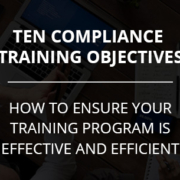Workplace Health & Safety – New Zealand
Course Description
Everyone who goes to work should come home from work safely. But hundreds of people are still seriously injured or die from work-related diseases in New Zealand every year.
Based on the Australian model work health and safetylaws, the new Health and Safety at Work (HSW) Act (2015) emphasises the role of safety leadership and management responsibility in identifying and eliminating risks to workers’ safety. It also highlights the need for people within a business to cooperate and collaborate with each other to reduce the number of workplace injuries and deaths.
Course Outline
- Module 1: Health and safety at work
- Module 2: Workers’ rights and obligations
- Module 3: Duties of PCBUs
- Module 4: Compliance and enforcement measures
- Module 5: Duties of officers
- Module 6: Health and Safety Representatives and Health and Safety Committees








